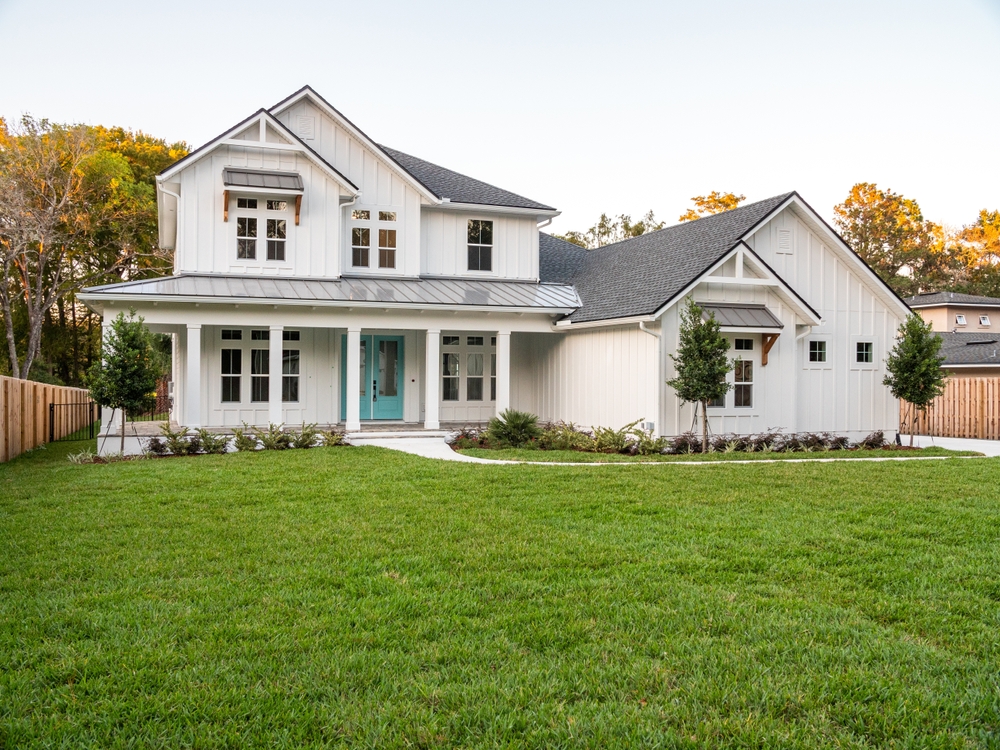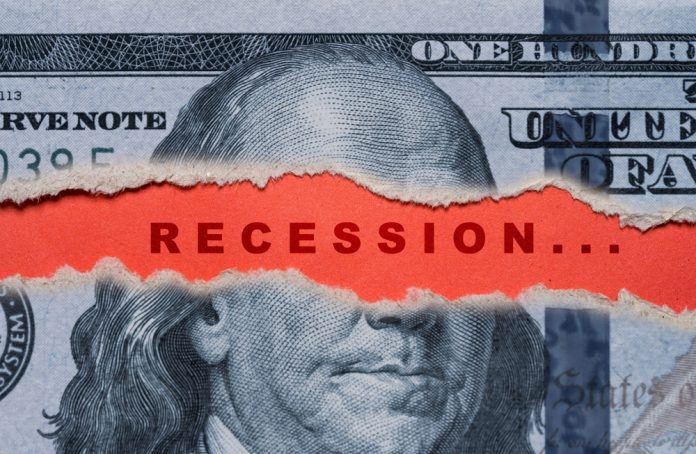Buying a home is already a huge decision, kind of like deciding whether you’re ready for a puppy, a plant, or a full-blown lifestyle commitment. Now toss in a recession, and it’s no wonder people start sweating bullets over the idea of house hunting. With economic uncertainty, layoffs, fluctuating interest rates, and general “should I just wait until the world settles down?” vibes, it can feel overwhelming.
But here’s the twist — a recession isn’t always the housing market disaster it’s made out to be. In fact, if you’ve got a steady job and solid financial footing, it might just be the perfect window to buy. Think of it as an opportunity disguised as economic chaos. Let’s break down what you should know before jumping into homeownership while the economy’s doing its best impression of a rollercoaster.
What Is a Recession, Really?
You’ve probably heard the word “recession” tossed around like it’s going out of style — but what does it actually mean? The old-school definition was pretty straightforward: two back to back quarters of negative GDP growth. These days, though, economists prefer a more nuanced approach. The National Bureau of Economic Research (NBER) — basically the official referee for economic cycles — says a recession isn’t just about GDP. They also factor in things like rising unemployment, shrinking income, declining consumer spending, weak industrial output, and drops in retail sales before making the call.
It’s kind of like diagnosing a cold — you don’t just go by the thermometer; you look at the full set of symptoms. And just like with a cold, even if it’s not officially “declared,” you’ll probably know when you’re feeling it. If your wallet’s feeling lighter, your job feels less secure, and every news outlet keeps whispering “slowdown,” you’re likely experiencing the side effects — recession or not.
How Recessions Impacts the Housing Market
Now here’s where it gets a little tricky. In a typical recession, the Federal Reserve steps in and lowers interest rates to help boost the economy. That move often results in cheaper mortgages, which can open the door for more buyers. But that’s not always the case — sometimes, like we saw in 2022–2023, the Fed actually hikes rates to fight inflation, throwing a curveball into the usual playbook.
So, while you might think a recession means lower home prices and lower mortgage rates, that’s not always the case. Sometimes you get one without the other, or neither. It’s like trying to order a combo meal and only getting fries. Still good, but kind of disappointing.
Greg McBride, CFA and Bankrate’s chief financial analyst, puts it simply: “A recession typically leads to a reduced level of real estate activity, as fewer people are willing or able to buy.”
In other words: the market might slow down, but that doesn’t necessarily mean you’ll stumble across amazing deals everywhere.
Do Home Prices Drop in a Recession?
You’d think so, right? Lower demand should equal lower prices. And often, that’s true — fewer buyers can mean fewer bidding wars and a bit more wiggle room on price negotiations. But if inventory is still low (like it has been in many markets recently), prices might stay stubbornly high.
It’s all about supply and demand. If no one’s buying and no one’s selling, we end up in a weird real estate stalemate. Think of it as a dance where no one wants to lead.
H. Jack Miller, president of Gelt Financial, sums it up: “Usually, during a recession or periods of higher interest rates, demand slows and values of homes come down.”
But again — that’s a “usually,” not a “guaranteed.” 
Pros of Buying a Home During a Recession
Let’s talk upside, because yes, there is one.
1. Less Competition When a recession hits, a lot of would-be buyers hit pause — whether it’s because of job uncertainty, shrinking budgets, or just playing it safe. That leaves fewer folks in the game, which means less competition for the homes that are on the market. Forget bidding wars and those heartfelt letters trying to win over sellers — you might actually get to negotiate like it’s 2012 again. Just you, the seller, and a little old-fashioned back-and-forth.
2. Lower Home Prices (Sometimes) With demand down, sellers might be more motivated. They may accept lower offers, throw in repairs, or cover closing costs — things you’d never dream of in a red-hot market.
3. Better Negotiating Power You might not just save money — you might get more. Appliances, repairs, flexible closing dates — buyers can call more shots when sellers aren’t flush with offers.
4. Opportunity to Refinance Later Even if interest rates are high now, there’s always the option to refinance down the line. “Date the rate, marry the house,” as mortgage brokers like to say.
5. Long-Term Investment Potential If you’re playing the long game (planning to stay in the home for 5+ years), buying during a downturn can pay off big once the market rebounds.
Cons of Buying During a Recession
Of course, it’s not all sunshine and open floor plans. There are real risks involved.
1. Job Instability Recessions often come with layoffs. If your job situation is shaky, taking on a mortgage might not be the best idea.
2. Stricter Lending Standards Banks get nervous during economic downturns, too. They may raise the bar for credit scores, increase down payment requirements, or tighten income verification. You’ll need your financial ducks in a row.
3. Reduced Inventory Some sellers choose to wait out the recession, pulling homes off the market. That can lead to fewer choices for buyers.
4. Harder to Predict Future Value Buying during a downturn means riding out uncertainty. Will the value go up in five years? Ten? Who knows? If you have to sell in a couple of years, you could be underwater.
5. Liquidity Concerns Tying up your savings in a down payment and closing costs might leave you cash-light — not ideal when the economy’s wobbly.
Is Now the Right Time for You to Buy?
This is the million-dollar (or at least several-hundred-thousand-dollar) question. Here’s a gut-check list:
It might make sense if:
- Your job is secure
- You have a healthy emergency fund (3–6 months of expenses)
- You’re planning to stay in the home for a while
- You’re comfortable with the monthly mortgage payment
- You’re not stretching just to get in the door
You might want to wait if:
- You’re in a volatile industry
- You’re relying on a bonus or commission-based income
- You don’t have much saved for emergencies
- You’re already juggling high-interest debt
If you’re not sure, talk to a financial advisor. Seriously — this isn’t a decision to crowdsource on Reddit.
Tips for Buying Smart During a Recession
Let’s say you’ve run the numbers, and you’re ready to house hunt. Awesome. Here’s how to do it wisely:
✅ Get Pre-Approved — Know exactly how much home you can afford and lock in a rate if possible.
✅ Shop Around for Mortgages — Don’t just go with the first lender. Rates and terms can vary widely.
✅ Don’t Skip the Inspection — Even in a buyer’s market, you want to know exactly what you’re buying. Surprises = $$$.
✅ Keep Your Emergency Fund Intact — Don’t drain it for the down payment. Future You will thank you.
✅ Work With a Local Agent — They’ll know what’s normal for your area and what a good deal looks like.
✅ Be Ready to Walk Away — It’s a buyer’s market for a reason. If something doesn’t feel right, wait.
Final Thoughts: Recession Isn’t Always a Red Light
Buying a home during a recession isn’t automatically a bad idea. It’s just a more complicated idea. If your finances are solid and you’ve found a home that fits your long-term needs, this could be your time to snag a great deal while others sit on the sidelines.
Yes, there’s more risk. But there’s also more reward for those who prepare properly and act with confidence.
So before you swear off real estate until the next economic boom, take a step back. Assess your situation, get good advice, and if the pieces fit — go for it.
After all, fortune tends to favor the bold (and the well-budgeted).


